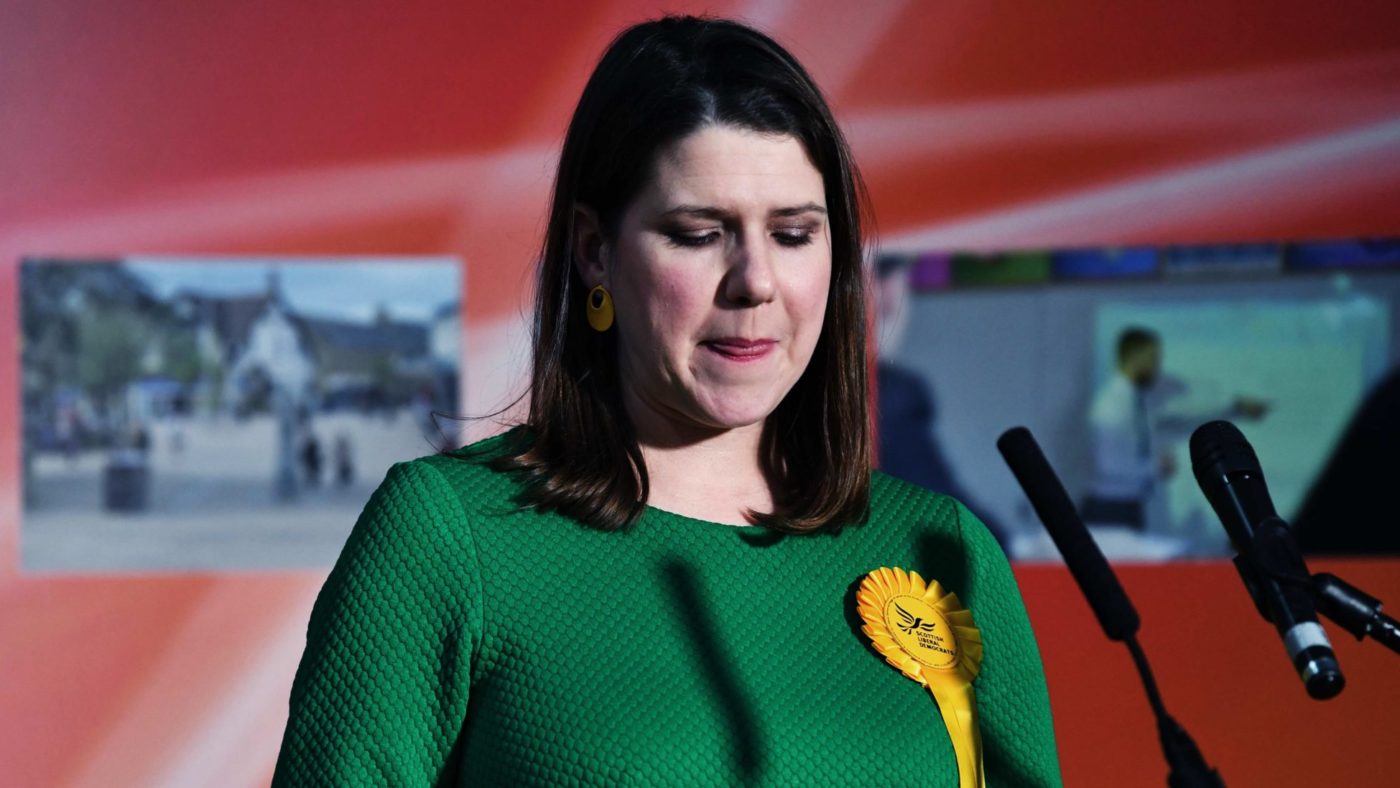With Labour typically gripped by infighting post-General Election catastrophe, the Lib Dems’ own electoral wipe out has rather been forgotten. The party entered the December 12 poll with 20 MPs, depending on how you count defections and so forth. They now have 11. Leader Jo Swinson lost her seat. The party did garner over 3.67 million votes and, as is so often the case, were cruelly treated by our electoral system, but by any standards the result was an unmitigated disaster.
This week, Tony Blair issued warnings to Labour about being caught in the trap of far-left policies and identity politics. Backing Ian Murray for the Deputy Leadership, he said:
“All of the candidates in this leadership election are wrestling with the inescapable fact that Labour’s lost four times in a row and that it has to be able to win power in order to put its principles into practice.”
Given their collapse from being a party of government under a decade ago to having less than a dozen MPs, the Lib Dems could do with some similarly tough love. They should heed Blair’s warnings about posturing and being dragged into culture wars that barely register beyond Twitter.
If they want to be a serious party once more, the Lib Dems must start with a root-and-branch review of the 2019 Election Campaign.
Amongst the many tactical failings of the campaign were the decisions about where to stand the defectors. Almost none of them ran in what were really winnable, marginal seats. Not surprisingly, they all lost.
Did they really believe that Chuka Umunna, even with his slick suits and Remain message, could win in the City of London? Was Angela ‘funny tinge’ Smith ever likely to unseat Sir Graham Brady, or Phillip Lee defeat Sir John Redwood? On what planet was Sam Gyimah going to win in Kensington? The answer should have been clear not only in hindsight and reflects a massive miscalculation at the highest levels of the party. A return to a more cutthroat approach to targeting will be required next time around, with resources focused on places where the Lib Dems can actually win.
It wasn’t just the newcomers who were let down though. Jo Swinson lost East Dunbartonshire by a mere 149 votes. The dereliction of duty by campaigns staff to allow this to happen should not be underestimated. Those local failings were compounded by Swinson having a disastrous national campaign.
The other serious tactical error was the Liberal Democrats’ positioning on Europe. Riding high on a wave of high-profile defections and the support of Remainers, the Lib Dems got overconfident in the run-up to last year’s poll, believing that they would be ‘the party of Remain’ and hoover up almost all of the subsequent anti-Brexit votes. That ultimately pushed them to back a position of revoking Article 50 if they won a majority. Overnight, this turned them from the party who had consistently fought for people power to the Liberal Un-democrats.
That position also leaves them stuck for the future. We’ve left the EU – so what do the Lib Dems stand for now? A rejoin position would be a disaster, and the next leader cannot allow their party to be dragged into such dogmatic positions. Nor must they come over as gleeful when times get during the next phase of the Brexit process. Nobody likes the person that says, “I told you so.”
What about on the domestic front? Liberal Democrat candidates have always been good at pointing at potholes and the party should not abandon that community-focused politics. It is clear people want politicians that ‘work for them’. However, thinking on a national scale and backing big infrastructure projects also matters. The Lib Dems supported HS2 in their recent manifesto, but they should also offer bold new ideas about how to provide better rail links across the North of England and other poorly connected regions.
Balance is also required in the party’s approach to the so-called gig economy. The Lib Dems should advocate policies that protect the rights of workers to enjoy the freedoms many of these jobs offer whilst also making sure they are not exploited.
Wisely, the Lib Dems have given themselves time to analyse all that went wrong by postponing the leadership election until the summer. They need to see who takes over from Jeremy Corbyn and make sure they select the right person to challenge them.
Unfortunately, the pool from which party members will get to choose is limited and there is little sign that the necessary lessons have even started to be learnt. Bath MP Wera Hobhouse is the only person to have officially thrown her hat into the ring so far, declaring the Lib Dems need to move left. Surely, with the two major parties polarising politics like never before, there is a great opportunity – and need – for the Lib Dems to occupy the liberal, centre ground, to return to the roots of both economic and social liberalism. They should offer a pro-free market, internationalist response to Brexit, not a knee-jerk retreat to their comfort zone.
If they don’t do this, the 2019 general election might mark the beginning, not the end, of their descent into irrelevance.
Click here to subscribe to our daily briefing – the best pieces from CapX and across the web.
CapX depends on the generosity of its readers. If you value what we do, please consider making a donation.


